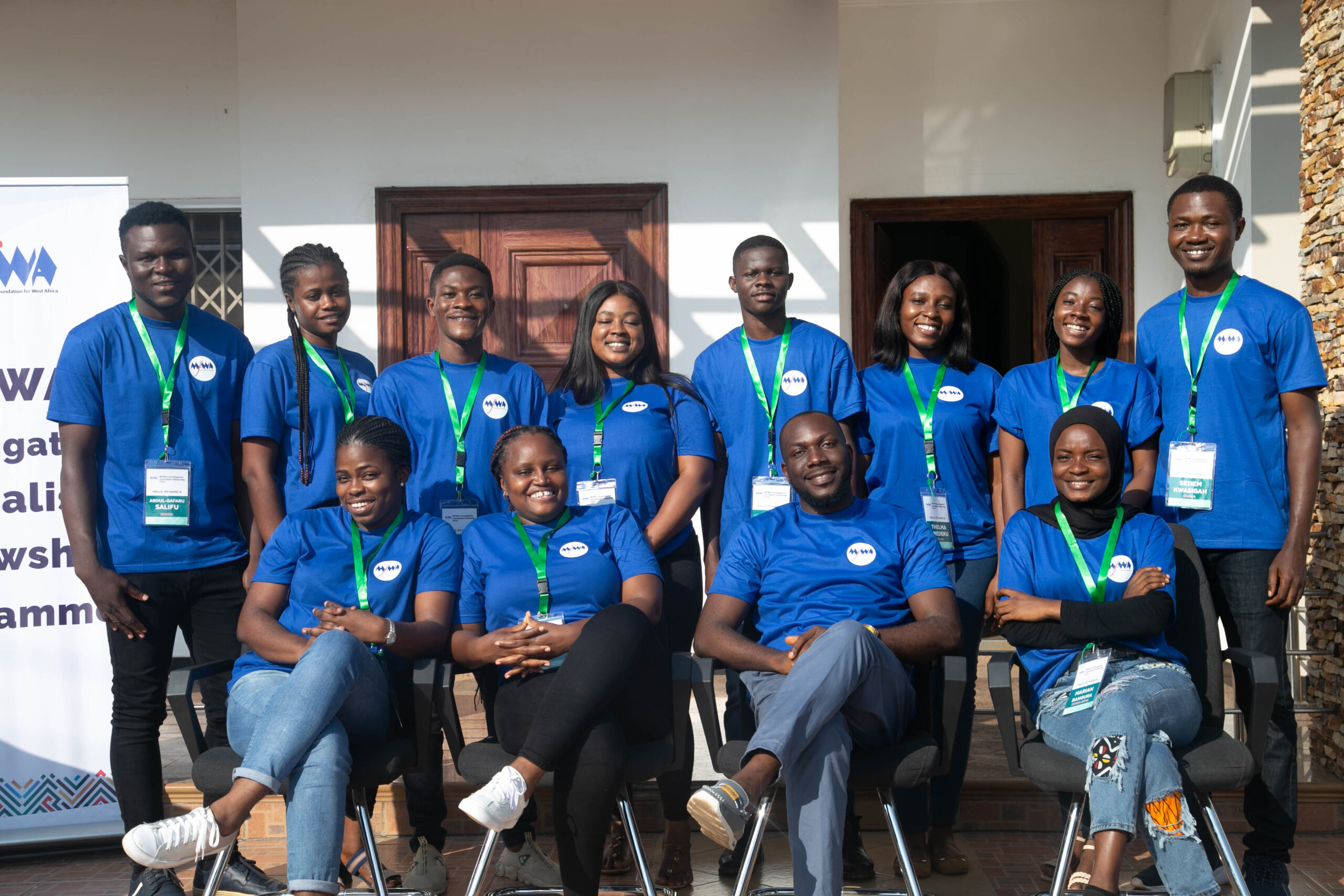Thirteen aspiring investigative journalists have been selected for the second edition of the Next Generation Investigative Journalism (NGIJ) Fellowship.
The journalists who have been selected from Liberia, Sierra Leone and Ghana will participate in a five-month intensive training under the NGIJ Fellowship programme.
The programmme seeks to enhance the skills and capacity of young journalists to venture into the practice of accountability and impactful journalism that significantly promotes national development in Ghana and West Africa as a whole.
The Fellowship will build the capacity of these early-career journalists in the West Africa region to be able to conduct critical, high-quality, fact-based and in-depth reporting which will contribute to improving lives and promoting good governance through journalism excellence.

In a brief event organized on Friday, August 5, 2022, the management of the MFWA officially welcomed the fellows.
“We are delighted to have you, and make you comfortable to work as much as you can. The MFWA is a great brand with amazing people and opportunities. Once you become a Fellow, you become part of MFWA,” Sulemana Braimah, Executive Director of the MFWA, assured the journalists of the organisation’s support.
Mr Braimah applauded the dedication and professionalism of the NGIJ Fellowship Team in selecting the finalists out of the almost two hundred applications that came in.
“Considering the various stages involved in the shortlisting process, at some point I asked myself if I would qualify should I be part of the applicants. This is certainly an indication of the level of quality,” Mr Braimah commended the team for the rigorous selection process.
The 13 journalists making the second cohort comprises 7 females and 6 males from the three (3) countries. The 2022 edition of the NGIJ is an expansion from the first edition which admitted10 budding journalists from only Ghana.
The Fellows will be working directly under the MFWA’s public interest and accountability journalism projects, The Fourth Estate and Fact-check Ghana. They will receive intensive practical training on data journalism, fact-checking and visualization, investigative journalism and basic multi-media and mobile journalism.
The selected journalists will also be taken through how to use the RTI law to access important datasets that can serve as the basis for groundbreaking journalism.
By the end of the fellowship programme in December 2022, the fellows would have experienced both theoretical and practical learning through seminars, boot camps, field trips, experience sharing sessions with industry players and institutional tours to build their capacity in journalism. Each Fellow will be expected to produce at least one significant investigative report by the end of the programme.
“Being here is a privilege. Some of us learnt on the job. We would have been better if we had an opportunity like this, so be willing to commit your time”, Manasseh Azure Awuni, Editor-in-chief of the Fourth Estate, advised.
One of the selected journalists from Liberia, Forgbe Kloh, couldn’t hide her joy for being part of the second cohort.
“I have no idea how many people applied from my country, but from the list, I could tell that I am the only person selected from here. It’s an honour to represent my country at this level. This selection means a lot to my future career. I hold the Media Foundation for West Africa in high esteem so I expect to become one of the best investigative journalists in Liberia when I get back based on the training, I will receive from the MFWA Family,” she said.
Victoria Adonu from Ghana explained she has always believed that one opportunity used wisely can change your life dramatically.
“I’m hoping this fellowship will be that opportunity. I know it will allow me to unleash my potential. I’m in for the challenge. I’m in for whatever may ensue, and I’m ready to learn and become Enyonam Adonu: Africa’s Investigative Journalist,” she said.
Victor Jones from Sierra Leone has the expectation to imbibe a treasure-trove of knowledge in investigative journalism, sharpen his skills, and establish connections with other like-minded journalists from other countries.
The Fellowship Coordinator, Deborah Pokua Bempah, who’s also a Fellow of the previous edition of the NGIJ, was happy that a new edition of the programme was starting.
“I am enthused, that yet another group of young journalists have been given the opportunity to go through this training as I did. The peak of my joy is being the coordinator,” Deborah said.
This year’s Fellowship is being organised with funding support from the US Embassy Ghana, and Dutch Foreign Ministry (through the Embassy of the Kingdom of the Netherlands).

